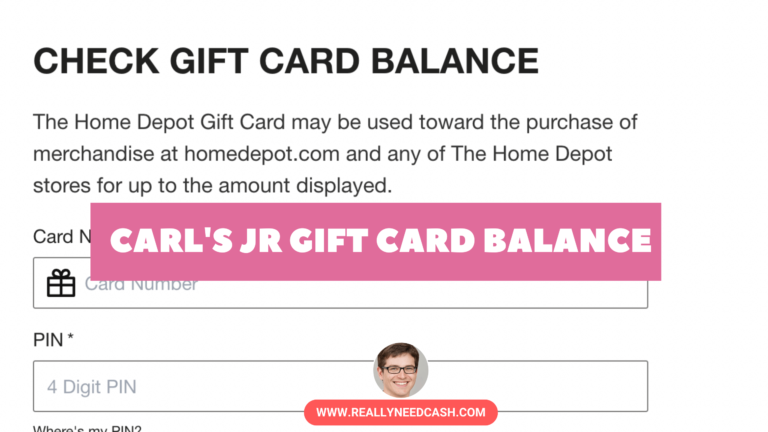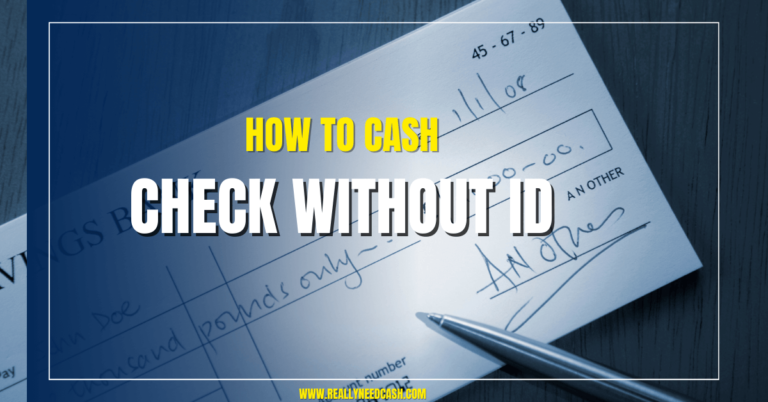Looking for the best scrap yard near you? Find top-rated scrap yards offering convenient services for recycling and selling scrap metal. Locate the nearest scrap yard using online search engines, maps, and specialized apps.
Scrap Yard Near Me
| Business Name | Category | Address |
|---|---|---|
| Scrap Yard | Clothing Stores | 300 W Broadway Frnt 1, New York, NY 10013 |
| Super Towing | Financial Services, Auto Repair & Service, Truck Wrecking | 251 Front St, Brooklyn, NY 11201 |
| Manhattan Gold and Silver | Scrap Metals, Gold, Silver & Platinum Buyers & Dealers, Smelters & Refiners | 45 W 47th St Unit 8, New York, NY 10036 |
| Sims Metal Management | Scrap Metals, Recycling Centers | 16 W 22nd St, New York, NY 10010 |
| City Scrap Metal | Scrap Metals | 3412 Avenue A, New York, NY 10009 |
| G & G Salvage Corp | Scrap Metals, Surplus & Salvage Merchandise | 51 S 4th St, Brooklyn, NY 11249 |
| The Junkluggers | Scrap Metals, Junk Dealers | 555 8th Ave Rm 1709, New York, NY 10018 |
| Blue Tee Corp | Scrap Metals, Steel Used | 250 Park Ave S Frnt 2, New York, NY 10003 |
| Schnitzer Steel | Scrap Metals, Recycling Centers, Junk Dealers | 640 8th Ave, New York, NY 10036 |
| Cash for Cars | Used Car Dealers, Wholesale Used Car Dealers, Appraisers | 1562 1st Ave, New York, NY 10028 |
| Tree of Life | Automobile Salvage | 881 5th Ave, New York, NY 10021 |
| Kips Bay Towing | Auto Repair & Service, Towing, Towing Equipment | 491 E 25th St, New York, NY 10010 |
| Amazone Towing | Auto Repair & Service, Auto Engine Rebuilding, Towing | 89 Sutton Pl S, New York, NY 10022 |
| We Buy Junk Cars Brooklyn New York | Junk Dealers, Automobile Salvage | 180 Montague St, Brooklyn, NY 11201 |
| Cash For Cars New York City Junk Cars | Truck Wrecking, Automobile Salvage, Used Car Dealers | 244 5th Ave Fl P299, New York, NY 10001 |
| Cash For Cars New York City Junk Or Not | Automobile Salvage, Junk Dealers, Towing | 425 E 58th St, New York, NY 10022 |
| 7 Day Always Emergency Towing | Towing, Automobile Salvage | 118 Hudson St, New York, NY 10013 |
| Louie Towing NYC | Auto Repair & Service, Automotive Roadside Service, Towing | 356 West St, New York, NY 10014 |
| 24 Hour Always Emergency Towing | Towing, Automobile Salvage | 100 2nd Ave, New York, NY 10003 |
| Towing AA | Towing, Used & Rebuilt Auto Parts, Automobile Salvage | 581 Hudson St, New York, NY 10014 |
| Collision Seven Day Chelsea | Automobile Salvage | 93 W 19th St, New York, NY 10011 |
| Tow Always | Automobile Salvage | 147 7th Ave, New York, NY 10011 |
| Towing Automotive | Towing, Automobile Salvage | 250 8th Ave, New York, NY 10011 |
| 1 24 Hour 1 Day Emerg A Bronx | Towing, Automobile Salvage | 101 E 26th St, New York, NY 10010 |
| Chris Junk Car Removal | Automobile Salvage, Used & Rebuilt Auto Parts | 250 5th Ave, New York, NY 10001 |
| 24 Hour Always Emergency Towing | Towing, Automobile Salvage | 43 W 32nd St, New York, NY 10001 |
| Tow Any | Automobile Salvage | 530 Fashion Ave, New York, NY 10018 |
| 24 Hour A Day Towing | Automobile Salvage | 125 Park Ave, New York, NY 10017 |
| XYZ America Towing | Automobile Salvage | 76 E 42nd St, New York, NY 10017 |
| Collision Second Avenue Towing | Automobile Body Repairing & Painting, Automobile Salvage | 790 2nd Ave, New York, NY 10017 |

How to Find Scrap Yard Near Me?
Step 1: Use Online Search Engines
Open a web browser and use search engines like Google to look for scrap yards near your location. Enter “scrap yard near me” or “scrap metal recycling near me” to generate a list of nearby scrap yards.
Step 2: USE Google Maps or Similar Services
Access Google Maps on your device and enter “scrap yard” in the search bar. The map will display nearby scrap yards along with their addresses and contact information.
Step 3: Check Local Business Directories
Refer to local business directories, both online and offline, such as Yellow Pages or Yelp. These directories often list scrap yards, including their addresses and customer reviews.
Step 4: Visit Scrap Yard Websites
Explore the websites of local scrap yards. They often provide location details, accepted materials, operating hours, and contact information for inquiries.
Step 5: Use Scrap Yard Locator Apps
Download and use specialized scrap yard locator apps available on app stores, such as iScrap App, Scrap Dragon, or Scrap Uncle. These apps use GPS technology to identify nearby scrap yards and provide additional details about their services.
Step 6: Inquire with Local Businesses
Ask local residents, construction companies, or auto repair shops for recommendations on nearby scrap yards. They may have valuable insights and suggestions based on their experiences.
How to Find the Best Local Scrap Yards?
When searching for the best local scrap yard near you, there are several resources and tools at your disposal. Follow these tips to find the right scrap yard that offers competitive prices and excellent service:
1. Google and Google Maps
Start your search by simply typing “scrap yard near me” on Google or Google Maps. This will provide you with a list of scrap yards in your area, their addresses, operating hours, and reviews from other customers. Make sure to read the reviews carefully, as they can give you valuable insights into the scrap yard’s reputation and quality of service.
2. Online Directories and Yellow Pages
Another useful resource for finding local scrap yards is online directories and the Yellow Pages. These platforms provide comprehensive listings of businesses, including their contact information, website links, and reviews.
Browse through the listings and compare the scrap yards based on their ratings and feedback from other users.
3. Craigslist
For better deals and the highest-paying scrap yard near you, Craigslist can help you compare rates from different local vendors.
Check the “materials” or “services” sections, where people often post about their experiences and recommendations for local scrapyards.
4. Facebook Marketplace
Facebook Marketplace is yet another platform to find local scrap yards. By using the search feature, you can quickly identify nearby yards and see what others are saying about them.
People often post reviews, comments, and recommendations about the scrap yards they have visited.
5. Local Recommendations
Don’t underestimate the power of word-of-mouth. Ask family members, friends, or neighbors for their preferred local scrap yards. Chances are, they have had their own experiences and can recommend a reliable establishment.
In your search for the best local scrap yard, consider the following factors:
- Scrap metal prices: Compare the prices offered by different scrap yards and choose the one with the most competitive rates.
- Customer service: Look for scrap yards with professional and friendly staff who can assist you in the scrapping process.
- Location: Choose a scrap yard that is conveniently located near your home or workplace, saving you time and transportation costs.
HOW MUCH DOES Scrap Metal COST?
When you’re looking to sell scrap metal, understanding the current scrap metal prices can help you get the best value for your materials.
Here’s a breakdown of the factors that determine these prices and some tips to get the most from your sale.
Types of Metals
There are two main categories for scrap metal: ferrous and non-ferrous. Ferrous metals, like iron and steel, contain iron and are prone to rust.
Non-ferrous metals like aluminum, brass, copper, and stainless steel do not contain any significant amounts of iron and are generally more valuable.
Factors Affecting Metal Prices
- Demand – The market demand for different types of metals affects their prices. As demand increases, so can the metal’s value.
- Weight – Most scrapyards pay by weight, usually in pounds or tons.
- Market Trends – Global market fluctuations, such as international trade disputes or economic trends, can impact metal prices.
Average Prices Per Pound
Here is a list of average prices for some common metal types (note that these may vary depending on your location):
- Copper: $2.50 – $3.50
- Aluminum: $0.30 – $0.50
- Brass: $1.10 – $1.50
- Iron: $0.07 – $0.14
- Steel: $0.08 – $0.12
- Stainless: $0.25 – $0.35
- Lead: $0.40 – $0.60
To stay updated on the latest prices, you can use tools such as the iScrap App. This mobile app provides you with instant access to current scrap metal prices and market trends.
Tips to Maximize Your Scrap Metal Sale
- Separate Metals: Sorting your metal scrap by type can help you get higher prices for your items, as scrapyards often pay different rates for ferrous and non-ferrous metals.
- Clean Your Metals: Removing any non-metallic materials like plastic, rubber, or wood can increase the value of your scrap metal.
- Check for Valuable Items: Some everyday items, like copper wire, car parts, or cans, can yield a higher price. So check for these valuable scrap metals before you visit a scrapyard.
- Call Around: Contact several scrapyards in your area to compare prices and find the highest-paying scrap yard for the types of metals you have.
Tips for metal Scrap for maximum profit
When selling scrap, it is essential to know which items and materials are commonly accepted and the most valuable.
- Air conditioners: copper, aluminum, steel
- Stainless steel appliances: stoves, refrigerators, toasters, and more
- Bicycles: steel, aluminum, and other metals
- Radiators: copper, brass, and other metals
- Plumbing pipes and fittings: primarily copper and brass
- Metal siding: aluminum, steel, and other metals
- Aluminum foil/trays: aluminum
- Plumbing fixtures: brass, stainless steel, and other metals
- Ammunition casings: brass and steel
- Doorknobs: brass, stainless steel, and other metals
- Lamps and lighting fixtures: metals, wiring
- Bedframes: steel and other metals
- Toasters and other small household appliances: various metals
- Christmas lights: wiring, small metal components
- Catalytic converters: valuable metals like platinum, palladium, and rhodium
Before selling your scrap, it is essential to separate the items by type. Use a magnet to identify ferrous (magnetic) metals, such as steel, from non-ferrous (non-magnetic) metals like aluminum, copper, and stainless steel. This will help you when it comes to differentiating metal types and potentially increasing the value of your sale.
It’s also a good idea to call local scrap yards in the United States and compare their prices before selling your scrap items. It’s wise to get a receipt for the sale of these items, as some scrapyards may have different pricing policies for different materials or might be more up-to-date with current market rates.
Remember that some scrapyards might have specific requirements for certain items, such as removing refrigerants from air conditioners or separating outer casings from valuable components.
Be sure to inquire with your scrap yard about these requirements before bringing your items for sale.
Does Scrap Metal Recycling impact recycling?
Scrap metal recycling plays a significant role in both the environment and business sectors.
It offers numerous benefits and advantages, such as resource conservation, energy savings, and revenue generation for various industries.
- Environmental Benefits: Scrap metal recycling helps in preserving natural resources by reducing the demand for virgin metal ores. It also decreases greenhouse gas emissions produced during the extraction and processing of ores. Furthermore, recycling metals requires less energy compared to the manufacturing of new metal products, leading to a reduction in overall energy consumption.
- Economic Benefits: The scrap metal recycling industry contributes significantly to the economy by providing employment opportunities and generating revenue for businesses and individuals involved in collecting, processing, and trading scrap metals. Moreover, recycling metals adds value by creating raw materials that can be used to produce new products, which in turn boosts the manufacturing sector.
- Ferrous Metals: Ferrous metals, such as iron and steel, are the most commonly recycled metals due to their widespread use in construction, automotive, and other industries. These metals are known for their strength and durability, making them ideal for recycling and reuse in various applications. Recycling of ferrous metals saves energy, reduces landfill waste, and helps conserve valuable resources.
- Non-ferrous Metals: Non-ferrous metals, including aluminum, copper, and brass, are increasingly in demand for their unique properties, such as resistance to corrosion, high conductivity, and lightweight nature. Recycling non-ferrous metals helps meet this growing demand while preventing the depletion of finite natural resources and reducing energy consumption during production.
- E-scrap: Electronic waste, or e-scrap, is a fast-growing global concern as the number of electronic devices increases rapidly. E-scrap contains valuable metals such as gold, silver, copper, and palladium, which can be extracted and reused through proper recycling processes. By recycling e-scrap, we prevent hazardous materials from ending up in landfills, conserve resources, and contribute to a circular economy.
Frequently Asked Questions
What’s the average pricing for different scrap metals?
Prices for scrap metals can vary greatly depending on the type, grade, and location. Some examples, in general, include:
- Copper: $2.00 to $4.00 per pound
- Aluminum: $0.20 to $1.00 per pound
- Brass: $1.00 to $2.00 per pound
- Iron: $0.05 to $0.10 per pound
Please note that these are rough estimates and that prices may change regularly. It’s best to check current prices before selling.
How do I determine which scrap yard offers the best prices?
To find the highest-paying scrap yard near you, follow these steps:
- Search online: Look for “scrap yard near me” using search engines like Google, or use online directories like the Yellow Pages.
- Use apps: Try the iScrap App, which can help find local scrap yards and compare their prices.
- Contact scrapyards directly: Call or visit their websites to inquire about current prices.
- Seek referrals: Ask friends, family, or local businesses for recommendations.
What factors affect scrap metal prices in the market?
Several factors influence scrap metal prices:
- Supply and demand: If there is a high demand for a specific type of metal or limited supply, prices may increase.
- Metal grade and quality: High-quality metals and alloys typically fetch higher prices.
- Market fluctuations: Global economic trends and market conditions can impact metal prices.
- Location: Transportation costs and regional demand can also affect pricing.
Are there any tips to maximize earnings from scrap metal sales?
Here are some ways to maximize your earnings:
- Separate metals: Group scrap metals by type and grade to get the best prices for individual metals.
- Monitor market prices: Keep an eye on market fluctuations, and sell when prices are high.
- Clean the scrap: Remove any non-metallic materials, rust, or corrosion to improve the scrap’s appearance and value.
- Negotiate: If you have a considerable amount of scrap, try to negotiate for a better price with the scrap yard.
How do I prepare my scrap metal for sale to get better prices?
To prepare your scrap for sale:
- Sort different metals: Separate materials by type and grade.
- Clean the metal: Remove any rust, corrosion, or non-metallic debris.
- Dismantle mixed materials: Take apart any items with mixed metal or non-metal components.
- Organize your scrap: Store it in a clean, dry area and label each type of metal for easier identification.
By following these steps, you can ensure that your scrap metal looks presentable and potentially fetches a higher price.
What are the most common payment methods for scrap yards?
Common payment methods for scrap yards include:
- Cash
- Check
- Bank transfer
- Mobile payment options (e.g., Venmo, PayPal)
Each scrap yard may have different preferences or requirements, so it’s best to inquire about their preferred payment method beforehand.







